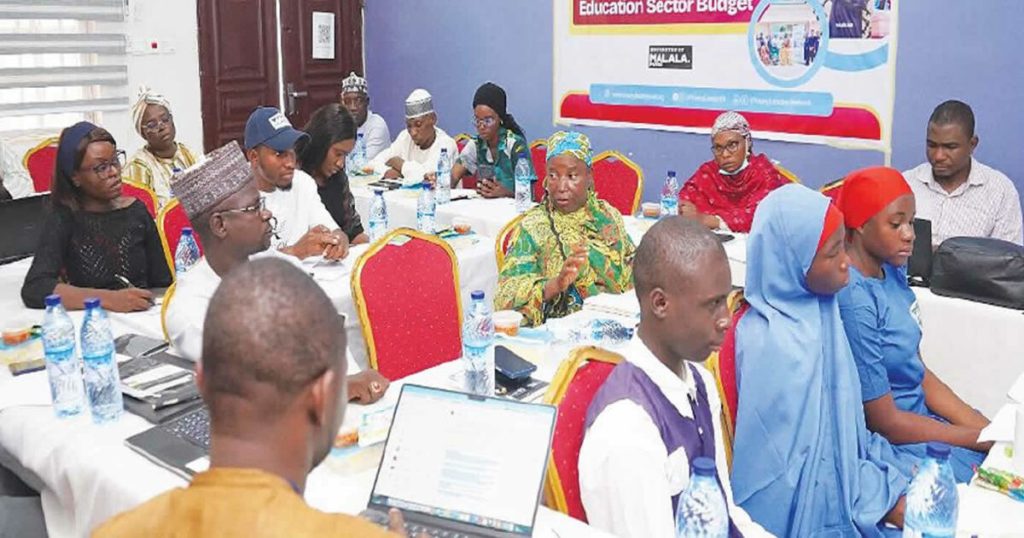Paragraph 1: Context and Objectives
The Young Leaders Network (YLN), in collaboration with the Bauchi State Ministry of Education and the Ministry of Budget, Economic Planning and Multilateral Coordination, conducted a comprehensive review of the state’s education sector budget performance for the second quarter of 2025. This initiative, undertaken as part of the Strengthening Advocacy for Girls Education (SAGE) Project, funded by the Malala Fund, aimed to assess the alignment of budget allocations with the state’s educational plans and objectives. The review process brought together key stakeholders within the education sector, including representatives from relevant ministries and agencies, to analyze the progress made during the first half of the fiscal year and identify potential challenges hindering the achievement of educational targets. The underlying goal was to proactively address any discrepancies and ensure that the state remains on track to meet its educational commitments.
Paragraph 2: Significance of Budget Alignment and Regular Assessments
Seun Justin, the Executive Director of YLN, emphasized the critical importance of budget alignment in achieving desired educational outcomes. He stressed that regular budget performance reviews are essential to ensure that financial resources are allocated effectively and efficiently towards fulfilling the state’s educational goals. These assessments serve as a vital monitoring mechanism, enabling stakeholders to identify and address any deviations from planned expenditures. By conducting regular reviews, the state can proactively prevent potential setbacks and ensure that resources are utilized optimally to support the educational needs of its population. This proactive approach is essential for achieving the state’s educational targets by the end of the year.
Paragraph 3: Efficient Resource Allocation and Management
Rabi’u Kubdiya, the Director of Finance in the Ministry of Education, underscored the importance of efficient resource allocation and management as crucial factors in achieving the state’s education goals. He highlighted the need for budget performance to reflect interventions from the Adolescent Girls Initiative for Learning and Empowerment (AGILE) Project, which has played a significant role in addressing challenges within the education sector. Kubdiya emphasized that proper financial management and strategic resource allocation are vital to ensuring the effectiveness of such interventions and maximizing their positive impact on the education system. By carefully aligning budget allocations with program objectives, the state can optimize the use of funds and enhance the overall quality of education.
Paragraph 4: Budget Performance Overview and Identified Gaps
Abubakar Usman, a planning officer with the Ministry of Budget, Economic Planning, and Multilateral Coordination, provided a comprehensive overview of the second-quarter budget performance. He highlighted the progress made in sustaining education funding, demonstrating the state’s commitment to prioritizing this critical sector. However, Usman also identified significant gaps, particularly concerning delays in the release of funds. These delays can hinder the timely implementation of planned educational programs and activities, potentially jeopardizing the achievement of desired outcomes. Usman’s presentation served as a crucial reminder of the need to address these bottlenecks to ensure the smooth and efficient execution of educational initiatives.
Paragraph 5: Assessment of Cumulative Budget Performance
Stakeholders present at the review meeting expressed concern over the cumulative education budget performance of 23.02% for the first and second quarters of 2025, considering it inadequate to meet the state’s educational objectives. This assessment highlighted the need for increased efforts to accelerate budget implementation and ensure that allocated funds are disbursed and utilized promptly. The stakeholders emphasized the urgency of addressing the identified delays in fund releases and implementing corrective measures to improve budget execution in the remaining quarters of the year. This collective concern underscored the need for a collaborative approach involving all relevant parties to ensure the successful implementation of educational plans.
Paragraph 6: Call for Improved Implementation and Collaboration
The stakeholders unanimously called for improved implementation strategies to bridge the existing gaps in budget performance and ensure the achievement of the state’s education targets. They stressed the importance of inter-ministerial collaboration and communication to address the delays in fund release and enhance the efficiency of budget execution. The participants acknowledged the need for greater transparency and accountability in the management of educational funds, which would contribute to building public trust and ensuring the effective utilization of resources. The collaborative review process underscored the commitment of all stakeholders to work together to improve the state’s education system and provide quality education for all.


